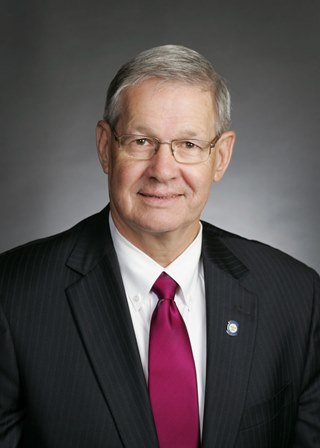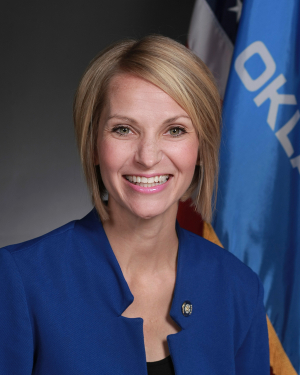Senate committee studies state services for children with Type 1 diabetes; Learns about benefits of CGM


The Senate Health and Human Services committee recently conducted a study to learn more about state services provided for children with Type 1 diabetes (T1D). The study was requested by Sen. Frank Simpson, who serves as Chair of both the Legislative Diabetes Caucus and the Appropriations Subcommittee on Health and Human Services. Simpson’s granddaughter passed away from complications related to diabetes and glucose monitoring.
“I want to thank everyone who came and shared information on how Type 1 diabetes is affecting our youth and what we can do to better help protect them and improve their quality of life,” said Simpson, R-Springer. “Our family learned how dangerous this disease was after losing my granddaughter, Payslee. She knew how to monitor and treat her diabetes and still lost her life because she wasn’t careful enough. We must do more to protect the health of our youth and ensure they’re properly educated on how to treat their disease but also have access to adequate healthcare and the tools they need for proper monitoring and treatment like insulin pumps and Continuous Glucose Monitors.”
Dr. David Sparling with OU Medicine specializes in Pediatric Diabetes and shared an overview of care and technology available to Oklahoma’s T1D youth. He noted the cause of T1D is unknown and there is currently no cure. The only treatment for the autoimmune disease is insulin, provided through injections or an insulin pump. In Oklahoma, he believes about 3,200 or one in 300 people under the age of 18 have the disease. He noted that lack of access to appropriate treatment options, like Continuous Glucose Monitoring (CGM) and insulin pumps, is the main problem for patients in the state.
Christina Foss, Legislative Liaison for Oklahoma Health Care Authority (OHCA), provided data on children with Type 1 diabetes receiving Medicaid. In FY’18, SoonerCare covered 889 children with T1D with total reimbursement for services rendered (inpatient, outpatient, pharmacy) totaling just over $13.5 million.
OHCA suggested one way to be better able to help children with T1D would be to provide access to CGM. The system tracks glucose levels 24 hours a day at regular intervals and provides real-time data to patients with or without an insulin pump. However, they are not covered by most private health insurance companies. At a cost of $5,282 per child, OHCA said it would cost approximately $1.32 million to provide monitors to 250 children. Providing CGM to all of Oklahoma’s T1D children would cost nearly $4.7 million annually. Foss said beginning in January 2020, they will be able to cover CGM at 100 percent of the Medicare rate for those who need it.
Mustang Public Schools Health Care Nurse Tammy Kain discussed how CGM helps school nurses better assist students with Type 1 diabetes, but it also helps the students focus and perform better in school.
Diabetes advocate Kim Kobeler shared her daughter Megan’s struggle with T1D. She cited a 2014 Stanford University study that found people living with T1D make an extra 180 decisions daily, on average. Kobeler said those decisions complicate what others consider normal, simple activities like family holidays and school field trips since snacks, timing and lengths of events, locations and other factors must be planned out exactly to ensure safe blood sugar levels for the child. Following strict instructions not to raise their hands during a test, a teacher unaware of Megan’s diagnosis caused her blood sugar to plummet to 23 leaving her unable to speak or move. Now a college graduate pursuing her Masters, Megan uses an insulin pump and CGM that has simplified her life and helped her keep her T1D under control. Kobeler advocates nationwide on the importance of access for all T1D patients to CGM and other technology for improving their health and lives.
Sen. Carri Hicks, who co-chairs the Diabetes Caucus, discussed her son’s near-death experience with T1D after being rushed to the hospital at 17-months-old. She explained that CGM and continuity of care has helped them better protect their now five-year-old and said such care should not be limited only to those with employee-sponsored insurance.
“Having access to a monitoring system that provides real-time information for families to make the best decisions possible for their kids should not be exclusive,” Hicks said. “It should not be isolated just for payers who have an employee-sponsored insurance plan that will pay for that.”
Presentations on CGM were also made by Dexcom and Medtronics.
 Oklahoma Senate
Oklahoma Senate

